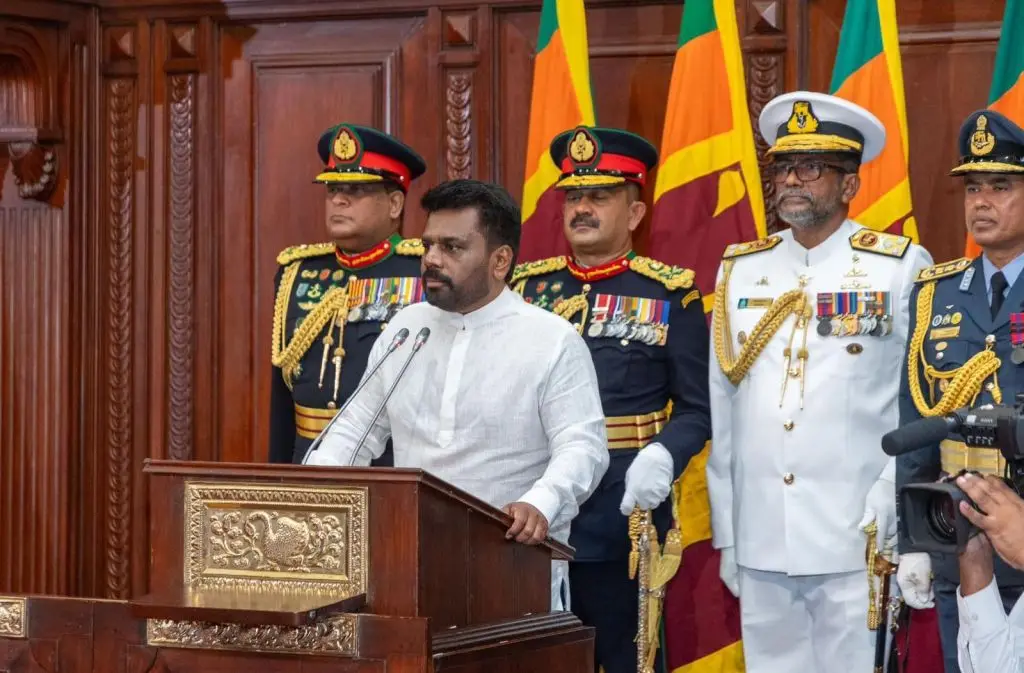Anura Kumara Dissanayake, a Marxist politician, was officially sworn in as the president of Sri Lanka after defeating outgoing president Ranil Wickremesinghe. Dissanayake’s party, the People’s Liberation Front, has a history of armed insurrections in the 1970s and 1980s. The new president acknowledged the challenges facing the country, stating that no single party or individual could address the deep crisis that Sri Lanka is currently facing. He received congratulations from Chinese President Xi Jinping, signaling a desire to strengthen relations between the two countries.
Sri Lanka, a country with a population of 22 million people, has been grappling with an economic crisis that has caused inflation to soar to 70% and led to a severe shortage of dollars. While the situation has improved, the nation’s GDP is expected to grow for the first time in three years. The political instability in the country has also been a concern, with the recent transfer of power marking the first standard transition since 2022 when riots led to the resignation and flight of then-President Gotabaya Rajapaksa. Dissanayake’s victory represents a new chapter for Sri Lanka as he seeks to address the austerity measures imposed by his predecessor under an agreement with the International Monetary Fund.
Dissanayake’s presidency comes at a time when many Sri Lankan voters are disillusioned with the country’s political landscape. The Buddhist majority nation has been slowly recovering from its economic crisis, and the new leader faces the daunting task of turning things around. The support from countries like China, the U.S., and India highlights the international interest in Sri Lanka’s future. Dissanayake’s commitment to easing austerity measures and addressing the challenges facing the country will be closely watched in the coming months.
The Belt and Road Initiative, a key project of the Chinese government, has faced challenges in Sri Lanka due to corruption and political backlash. While China has been a significant player in Sri Lanka’s infrastructure development in recent years, there have been concerns about the transparency and sustainability of these projects. Dissanayake’s presidency could potentially reshape the relationship between Sri Lanka and China, with the new leader expected to prioritize the interests of his own country while maintaining diplomatic relations with international partners.
As Dissanayake takes office, he inherits a nation in transition, grappling with economic challenges and political uncertainties. His ability to navigate these complex issues will be crucial in determining the future trajectory of Sri Lanka. The new president’s commitment to addressing the concerns of the people and implementing policies that promote growth and stability will be key in rebuilding confidence in the government. With the support of international partners and the backing of the Sri Lankan people, Dissanayake has the opportunity to steer the country towards a brighter future.


